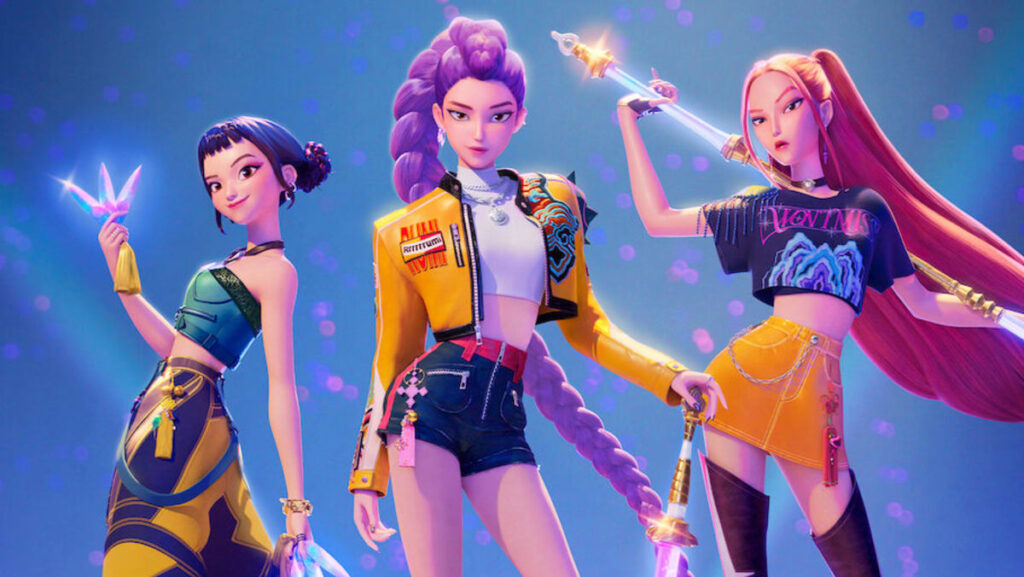These cultural exchanges are a good thing. Co-director Maggie Kang, a Korean-Canadian filmmaker, recalled in an interview how her elementary school teacher couldn’t even point to South Korea on the map.
During a screening in Seoul, Kang said her advice to aspiring local-content creators was never to try to cater to the opinions of others. “That’s the only way K-content can reach an even broader audience – show our culture exactly as it is, with confidence,” she said.
GUARDING CULTURAL FRANCHISES
South Korea must now ensure that it’s not just Western companies that profit from its coolness.
Much debate in the US has centred around whether Netflix left money on the table when it limited the theatrical release of the film, or failed to forecast the skyrocketing demand for merchandise. (Not to mention Sony Pictures Animation’s pandemic-era decision to sell the movie rights to the streaming service for what, in retrospect, was a very low-ball figure.)
But this discourse is missing a broader issue. At a time when global demand for K-content is growing, ensuring Korean companies maintain the IP rights for global franchises like Demon Hunters is an important place to start.
For platforms trying to capitalise on South Korea’s soft power, there’s a lesson: Not everything has to be culturally watered-down for an American audience. The team behind the film went to great lengths to make sure that the story maintained its authenticity in representing Korea to the world. The efforts have clearly paid off.
Netflix should be commended for recognising the international appeal of Korean storytelling and investing in it early. But it’s now time South Korea guards and profits from its cultural franchises.
https://www.channelnewsasia.com/commentary/netflix-kpop-demon-hunters-success-story-culture-5326566


